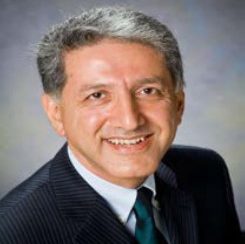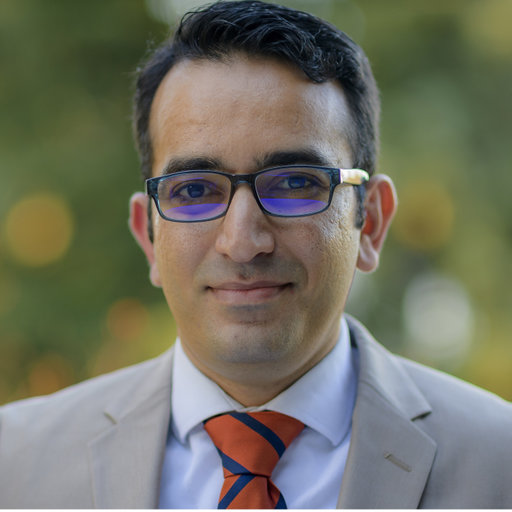HAC Workshop
IEEE Canada is pleased to announce it will be hosting the Humanitarian Technology Track within the 2020 EPEC in lieu of its flagship IEEE International Humanitarian Technology Conference 2020.
The workshop will contain a number of technical talks, as well as its self-contained paper track. IEEE Canada invites paper submissions aligned with United Nations goals as they pertain to power and energy.
The workshop themes include, but are not limited to, the following United Nation Goals:
- Goal 4: Quality education
- Goal 7: Affordable and clean energy
- Goal 9: Industry, Innovation, and Infrastructure
- Goal 11: Sustainable cities and communities
- Goal 13: Climate action
- Goal 17: Partnerships for the goals
Welcome to the HAC Workshop
Date: November 12th, 2020 9.35 – 12.00 PM
Moderator: Bob Gill
Workshop #1: Improving Energy Efficiency of Electrical Distribution Systems in Commercial Buildings
Time: 9.45 – 10:25 AM
The workshop is intended to present a novel Dynamic Power Dispatch (DPD) concept that allows dynamic optimization of the EDG’s distribution configuration within CB. The novel DPD enables reduction of the DDT losses by about 60%. Up to 70% of the existing DDTs (introduced by using conventional design approach) can be removed without compromising safety and grid reliability reducing capital expenses by about 25% – 30 % with corresponding footprint reduction, freeing floor space accordingly.
Proposed methodology is being adopted for development of a new CSA standard with appropriate requests for amendments to the Canadian Electric Code Part I.
Speakers: Dr. Constantin Pitis is with ELEN-MECH. Consulting Inc, and Dr. Ali Palizban is with BCIT
Workshop #2: Harnessing the Wind Power Technology
Time: 10:30 – 11:00 PM
Harnessing the Wind Power Technology
Speaker: Pooya Taheri, P.Eng and sessional instructor at several institutions in Greater Vancouver Area.
Workshop #3: Smart Microgrids and their impact on transition to Green Economy
Time: 11:30 – 12:00 PM
Given rapid depletion of hydrocarbon resources, combined with adverse impacts of climate change, the advanced economies of the world, as well as developing nations, need to invest in energy conservation, loss reduction and rationalization of energy use. The objective is to equip communities, large and small, on-grid or off-grid, remote or urban, with efficient, economical, environmentally responsible, reliable and sustainable energy. However, the technologies required for this purpose are still in the making by pockets of experts spread around the globe. To ensure successful integration of those technologies into affordable solutions, and deployment of those solutions into communities, two parallel environments have to be created; one is an integrated training/education program, interconnecting interdisciplinary expertise in energy system design, energy management, energy distribution, etc, and focus these on highly-focused research and development on actual solutions for affordable community-based electrification. Secondly, a physical sandbox to enable such solutions to be verified prior to deployment. This presentation describes a world-class R&D & Educational Platform constructed by BCIT researchers, enabling Scientists. Researchers and Educators to work together to develop, validate and train required resources and solutions for energy-efficient and green homes, hospitals, campuses, factories, communities and transportation. Solutions which could be adapted by many communities domestically and internationally.
Speaker: Dr. Hassan Farhangi, Scientific Director, British Columbia Institute of Technology, Vancouver, Canada
Speakers

Bob Gill is a telecommunications and networks expert focused on wireless and wired networks. His other interests involve sensors, co-operative, cognitive and ad-hoc networks. Throughout his schooling, Bob pursued a dual career path in telecommunications and power.
His industry experience includes: IBM (Toronto Lab Operations- now called Celestica), BCHydro in various capacities including: system planning, design, field operations, customer service and telecommunications. During tenure with TELUS in Calgary as a Technology manager, he was responsible for LAN/WAN, TX, meridian, IVR and the call center.
Bob is also an experienced educator. He has taught at Simon Fraser University, The University of British Columbia, The University of Victoria and The British Columbia Institute of Technology. These teaching assignments have been in diverse areas: electrical and computer engineering, DSP, network security, bio-medical engineering, computer systems and professional practices.
He is a Fellow of Engineers Canada and has served EGBC in various capacities and presently serving as a member on Mentoring committee. He is currently serving as Past Chair, IEEE Vancouver Section and R7-Canada West Chair.

Dr. Hassan Farhangi, Ph.D., SM-IEEE, PEng, is Dir of Smart Grid Research at British Columbia Institute of Technology in Burnaby, BC, and Adjunct Professor at Simon Fraser University (SFU). Dr. Farhangi is the chief system architect and the Principal Investigator of BCIT’s Smart Microgrid at its Burnaby Campus in Vancouver, British Columbia, and the Scientific Director and Principal Investigator of NSERC Smart MicroGrid Network (NSMG-Net). He has published and presented numerous papers in scientific journals and conferences in Smart Grid and is a member of various international standardization committees such as IEC CSC TC57 WG17 (IEC 61850), Cigre WG C6.21 (Smart Metering) and Cigre WG C6.22 (Microgrids Evolution). A frequent keynote speaker at various international Smart Grid conferences, Dr. Farhangi has more than 25 years of experience in academic and applied research. Before joining BCIT, he served as Chief Technical Officer (CTO) of a number of companies involved in the design and development of systems, components and solutions for the Smart Grid. Dr. Farhangi is a member of Association of Professional Engineers and Geoscientists of British Columbia (APEG), and a senior member of Institute of Electrical and Electronic Engineers (IEEE).

Constantin D. Pitis obtained in 1968 an MSc degree in Electrical (Power) Engineering from Technical University of Jassy, Post-graduate Diploma in Rocket Engineering from Military (Technical) Academy of Bucharest, BSc in Reliability Engineering from Polytechnic Institute of Bucharest in Romania and a PhD degree in Electrical Engineering from North West University, Potchefstroom, South Africa.
From 1968 to 1990 he was Senior Scientist Researcher at Electroenergetics Institute ICEMENERG and Principal Researcher & Designer at Aeronautics Institute – IMFCA and National Institute for Scientific and Technical Inventions – INCREST Romania, followed by 2 years contract as Technical Expert with NATO Haupt-Bureau, Berlin
Between 1992 and 2002, as Technical Manager at Hertz Technologies Pty, a division of James Howden Holdings (USA) – Safanco South Africa, he was directly involved in design, test & diagnose manufacturing, and repair of standard, special and explosion proof electric motors up to 20,000 kW, transformers and underground power substations and ventilation systems for various mining houses and heavy industries. His experience in management and product development was expanded as a Project Manager at Femco Mining Motors Incorporated in the Savcio Group (Marthinusen & Coutts, Pty.) South Africa. He was lecturer (Power Systems) at University of Technology Pretoria.
In 2006 he immigrate Canada and joined BC Hydro – Power Smart Engineering as Specialist Engineer and then Powertech Labs – a BC Hydro subsidiary completing over 880 Energy studies, Technical reviews of various Energy study reports as part of DSM policy, being directly engaged in site inspections and forensic investigations reports on demand side
Since 2018 he founded ELEN-MECH. Consulting Inc. a multi-disciplinary consulting corporation specialized in Power Demand, Energy Management and Demand Response strategies applied in industrial and commercial sectors performing also Electrical Machinery design, simulations and reviews, manufacture, power losses segregations and Temperature rise assessment, performance on steady state and dynamic load, condition monitoring and diagnose
His fields of interest include power flow optimization, electric machinery, power quality and technical product development related to energy efficiency technologies for industrial and commercial applications. Since 2011 he championed a novel method of benchmarking industrial systems and processes – one of his IEEE papers receiving “Best Paper Award” 1st Place at International System Conference, SysCon – 2015.
Holder of four patents and a copyright electric motor design program, he published over 60 scientific and technical papers on electric machinery diagnosis, design and testing, power converters, energy efficiency, application engineering and benchmarking.
Dr. Pitis is registered Professional Engineer with Engineering Council of South Africa, ECSA and Association of Professional Engineers and Geologists, EGBC Canada. He is member of South African Institute of Electrical Engineers – SAIEE, Rotating Machinery Working Group SA, Canadian Standard Association – CSA Energy Efficiency Group, Association of Energy Engineers – AEE as Certified Energy Manager and IEEE member in IAS and member of “Teacher In Service Program” TISP – IEEE.

Dr Ali Palizban is a senior member of IEEE, received his Ph.D. in Electrical Engineering from University of New South Wales, Sydney, Australia. He is currently a faculty of the Department of Electrical and Computer Engineering, School of Energy of BCIT, Vancouver, Canada. He has worked in the electric power industry, consulting engineering firms, academic and R&D institutions for over 28 years. He is involved in applied research on Microgrid design and implementation, substation automation and Volt/VAR Optimization projects. He has published several peer-reviewed papers in electrical power and control systems. He is a member of Association of Professional Engineers and Geoscientist of British Columbia (EGBC). His fields of teaching and research are Power System Analysis and Design, Control, Automation Systems and Smart Microgrids. He also provides consulting engineering services to industry. He has been directly involved in the design of BCIT Microgrid and steam power generating plant from the early stage of feasibility study, simulation analysis, installation, testing and final phases of commissioning and operation.

Pooya Taheri is a registered Professional Engineer (P. Eng.) in the province of British Columbia, Canada. He has several years of academic and industrial experience in different fields of electrical engineering such as power system transmission, electromagnetic transient simulation, and power electronics. He worked as a power system engineer for Powertech Labs and BC Hydro from 2012 to 2016. Since 2016, he has worked as a sessional instructor at several institutions in the Greater Vancouver Area.
SEE THE FULL CALL FOR PAPERS HERE:
